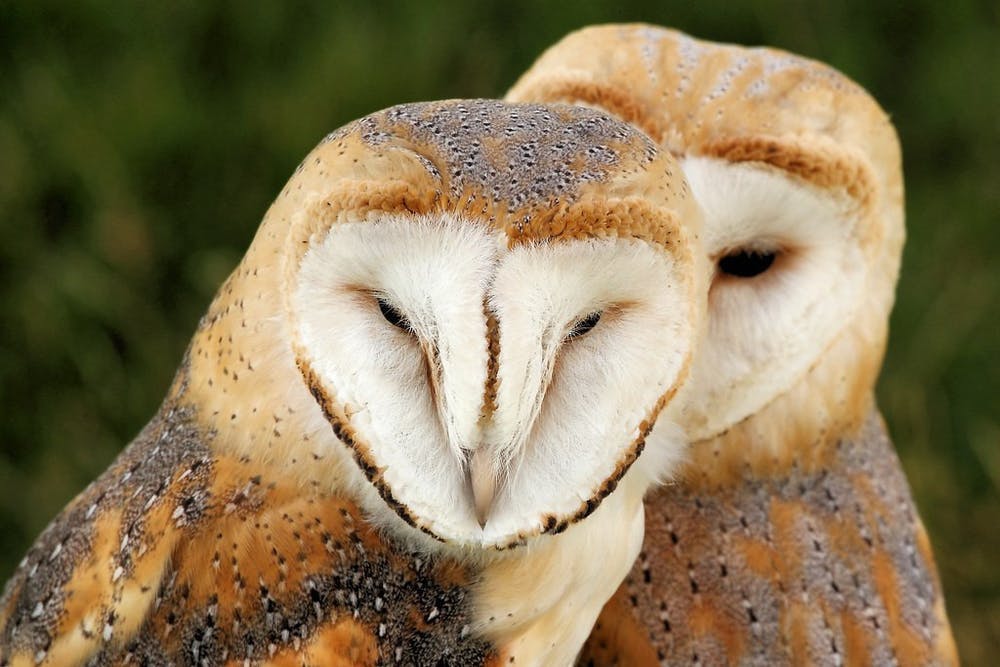Earlier today, People for the Ethical Treatment of Animals (PETA) addressed a letter to the Office of Policy for Extramural Research Administration (OPERA) at the National Institutes of Health (NIH), alleging that Shreesh Mysore broke the law by performing experiments on barn owls without an active permit. Mysore is an assistant professor affiliated with the Department of Neuroscience and the Department of Psychological & Brain Sciences.
PETA has previously criticized the Mysore lab for its experiments on barn owls.
On February 23, PETA urged Secretary Jeannie Haddaway-Riccio of the Maryland Department of Natural Resources (DNR) to investigate the Mysore lab’s apparent violation of Maryland state law between 2015 and 2018. During this period, Mysore allegedly possessed barn owls for experimentation without holding scientific collecting permits.
After conducting a review, the DNR responded to PETA on May 5, stating that Mysore’s original scientific collecting permit expired on December 31, 2014. Mysore applied for a second permit on December 14, 2018, which was awarded.
Haddaway-Riccio informed PETA that the DNR had advised Mysore in a March 4, 2021 letter that the scientific collecting permit must be renewed annually.
“Operating under an inactive permit is a violation [of Maryland state law] and subject to potential enforcement action and foreclosure of the research project,“ Haddaway-Riccio wrote.
Despite the lack of annual permits, Mysore’s scientific publication history shows that his experiments on barn owls continued from 2015 to 2018.
In the application to renew his permit for 2019, Mysore claimed that the owls present in his lab were not collected from the wild but rather were born in a Hopkins facility or obtained from Stanford University or the University of Maryland.
“We have, in fact, never collected owls from the wild since I started owl research at Johns Hopkins University in 2014,” Mysore wrote.
However, PETA’s case centers on a Maryland state law that requires interested parties to apply for a permit in order to possess protected birds.
“Any properly accredited person wishing to possess a protected bird or parts of a protected bird for educational or scientific purposes, or for the purpose of propagation, may apply to the Department for a permit,“ the law states.
Permit holders are required to make annual reports on the status of the birds. PETA argued Mysore did not make annual status reports between January 2015 and December 2018.
“Shreesh Mysore’s tortuous tests on sensitive owls were illegal under [Maryland] state law between 2015 and 2018,” Asher Smith, a litigation manager for PETA, said in an interview with The News-Letter.
The NIH requires grant recipients to be in compliance with all relevant laws and regulations. PETA claims that Mysore used federal funds to conduct experiments on owls in violation of both the NIH Grants Policy Statement and Title 45 Section 75.441 of the Code of Federal Regulations.
In an email to The News-Letter, Karen Lancaster, the assistant vice president of external relations for the University, wrote that Mysore is currently compliant with the DNR but did not comment on the 2015-2018 period during which Mysore lacked a scientific collecting permit.
“[The] DNR has confirmed that Dr. Mysore is presently fully compliant with Maryland permit documentation requirements and that his renewed permits reflect adherence to all necessary guidelines to conduct his research,“ Lancaster wrote. “There is no current action against JHU by [the] DNR and we are not aware of any such pending action.”
While Mysore currently has a permit, PETA is advocating for the NIH to recoup expenses made by Mysore and Hopkins between 2015 and 2018 and to prevent Mysore from obtaining more funding from government agencies.
Vice President of International Laboratory Methods for PETA Shalin Gala sent an email to the NIH earlier today that was shared with The News-Letter.
“We [PETA]... demand repayment of all disallowed taxpayer funds expended by Mysore and/or JHU during the period in which he violated Maryland state law. We also ask that you prohibit Mysore from receiving future funding from NIH and other government agencies for experiments on animals,” Gala wrote.
Regarding a similar complaint made by PETA against Gregory Ebel at Colorado State University (CSU), the NIH confirmed that Ebel’s 2018 experiments were illegal because of the lack of a 2018 license. However, the lab still receives grant money today.
In a public statement, CSU wrote that the cause of the permit lapse was due to a clerical error.
“The annual federal permit was current during this time, but due to a clerical error there was an inadvertent lapse in the annual state permit during the time birds were collected in 2018,“ CSU wrote. “Prior to 2018, the researcher had both the annual state and federal permits for collection dating back to 2013. CSU communicated this error to the sponsor of the work — the National Institutes of Health.”
Ellie Rose Mattoon contributed reporting to this article.





